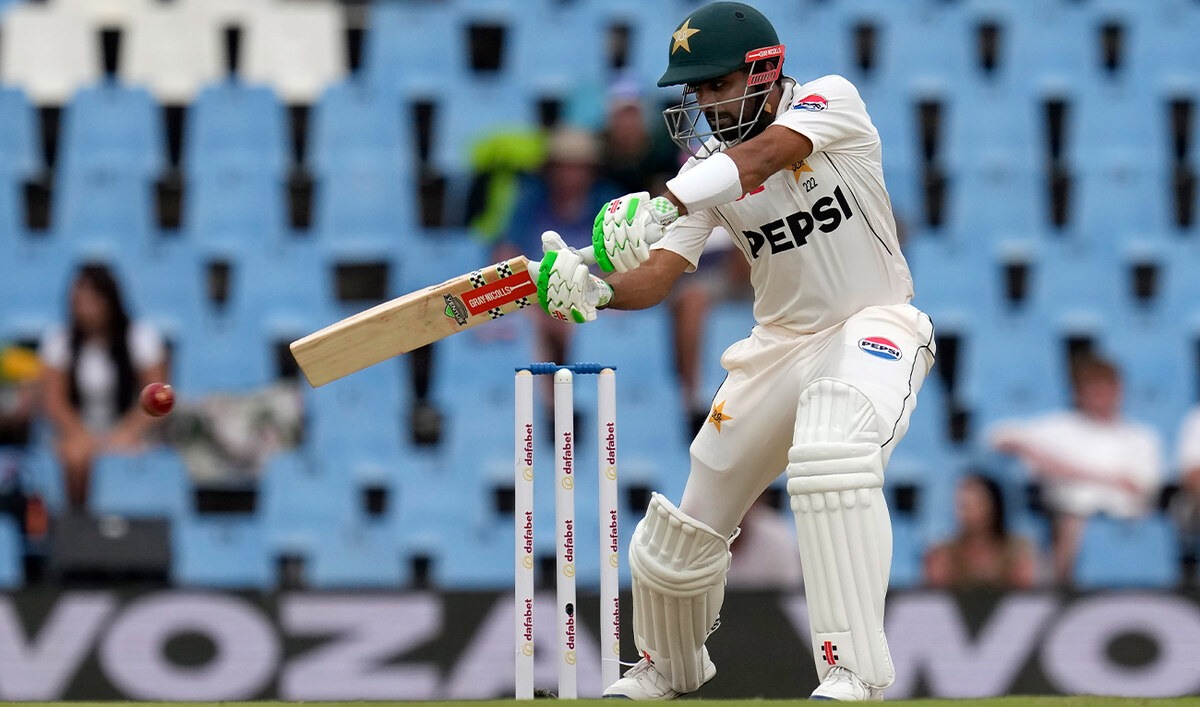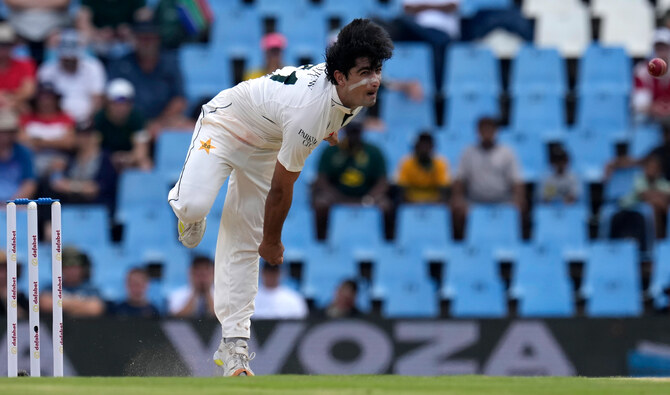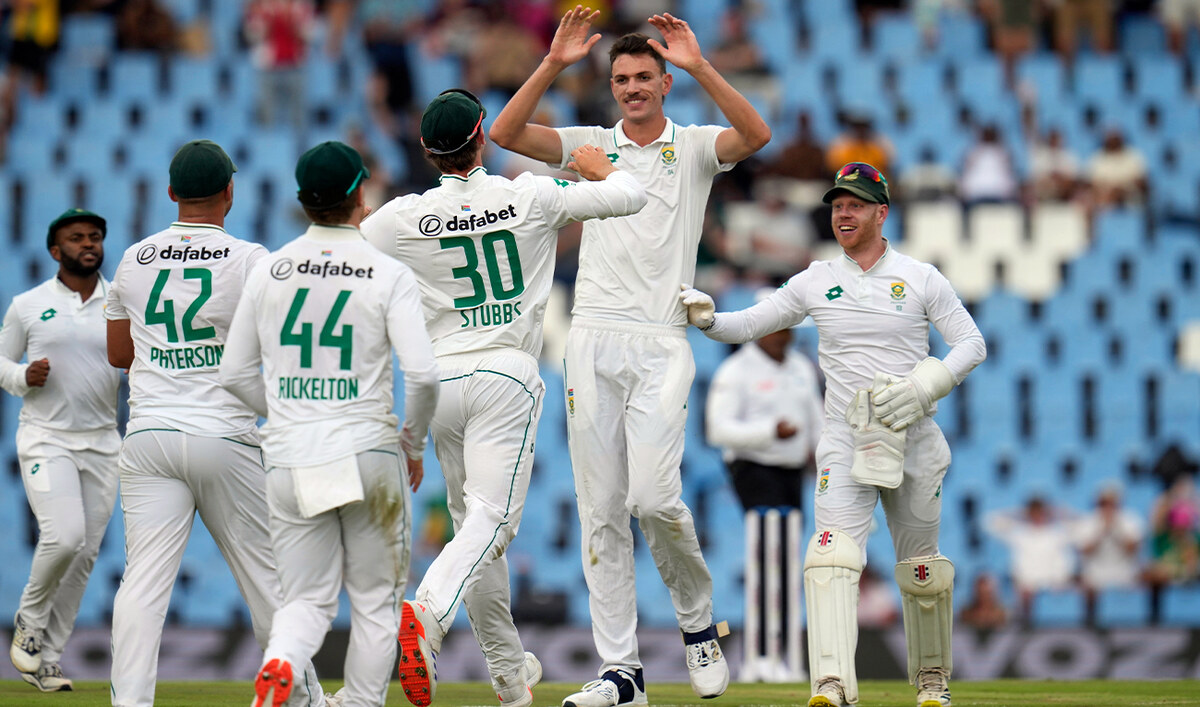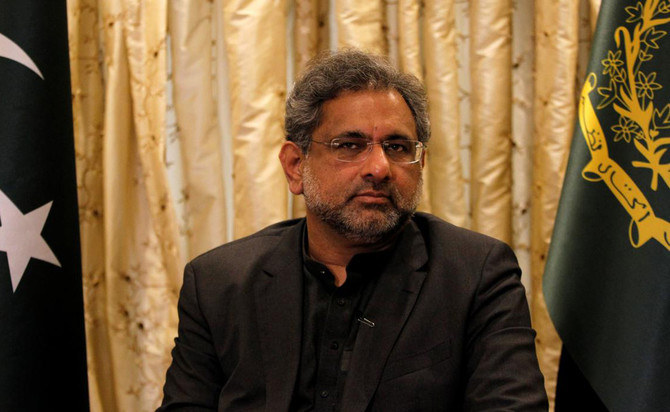KARACHI: A long-term Liquefied Natural Gas (LNG) contract that Pakistan signed with Qatar three years ago has landed two of the country’s top former officials, a former Prime Minister and Finance minister, into jail on suspicion of corruption- a charge that opposition leaders have termed the political victimization of political opponents.
The $16 billion sale and purchase agreement termed as a ‘game changer’ for Pakistan was signed between then Petroleum Minister Shahid Khaqan Abbasi and Chairman Qatargas, Saad Sherida, in February 2016, following frequent power outages and amid depleting gas resources. The deal was projected to meet the 20 percent increase in the demand of energy in the coming years, for the supply of up to 3.75 million tons of LNG every year for fifteen years. That 2016 deal also supplied Pakistan’s first LNG terminal.
Last month, Pakistan’s anti-graft agency, the National Accountability Bureau (NAB) took Abbasi into custody on the grounds that he was stalling the investigation process by not responding to questions. Earlier this week, former finance minister Miftah Ismail was arrested in the case as well.
“This is nothing but victimization and harassment of political opponents,” PML-N Senator Saleem Zia, member of the senate’s Standing Committee on Petroleum, told Arab News.
“This despite the fact that Khaqan Abbasi has been openly cooperating with NAB,” he said, and added that as the case proceeds, “everything will be exposed.”
What that ‘everything’ is, still remains shrouded in mystery, as details of Pakistan’s accord with Qatar have not yet been made public. The arrests are adding to the uncertainty, with close to no information on the terms and conditions of the deal yet known.
As the opposition comes under increasing scrutiny by NAB, with former Prime Minister and PML-N party head Nawaz Sharif in jail for ten years, and his daughter, Maryam Nawaz arrested on Thursday, opposition leaders have accused the government of using the arrests to distract from its own incompetence.
“There is strong reaction from all parties and general public who believe that the government is making (arrests) to hide its incompetence. They should focus on other affairs because this is not going to solve the problems of the country including its economy,” Zia said.
In 2016, Pakistan’s then opposition parties had voiced their concern over the LNG deal made behind closed doors, and largely out of the public eye, while the PML-N government had defended the deal as Pakistan’s “best available option,” claiming it would save the country $1 billion every year.
“This agreement is being acknowledged globally as most cost effective deal for LNG. Pakistan will continue to import LNG from Qatar till 2032,” Abbasi had announced soon after signing the deal.
Following the deal, a contract for the country’s first LNG terminal was awarded to a local company which sparked criticism by opposition lawmakers who protested the lack of transparency.
According to NAB prosecutor, Sardar Muzaffar Abbasi, the contract awarded to the favored local company has cost the country more than a billion rupees in losses.
“Due to this flawed contract, the national exchequer has suffered Rs. 1.54 billion losses so far,” he argued in Islamabad High Court on Wednesday ahead of Miftah Ismail’s arrest.
According to Haider Waheed, who is Ismail’s lawyer, the NAB prosecutor did not give any details of losses incurred beyond quoting the figure.
“They do not know about it, and there are no losses at all,” Waheed said.
When contacted for comment, NAB prosecutor, Sardar Muzaffar decline to comment on the break-up of the loss figure.
Experts keeping a close eye on developments say that the Qatar deal was thrown into doubts after analizing the terminals’ Return on Investment (RoI) and Return on equity (RoE). The re-gasification Terminal I and Terminal II have been set up in Karachi.
“The RoI and RoE on the investment in the LNG plant (Terminal I) is too high on both operational and non-operational level. That is a doubtful element and that is the pivotal point of the game,” Muzamil Aslam, senior economist, told Arab News. He added that no document was publicly available but the payment of a large amount as the penalty on non-utilization of terminals, suggested that returns were negotiated too high.
“There were positives and negatives of the LNG deal. Negative (points) being that the spot rates move down sometimes but (they) have made a long-term contract... to ensure supply. Negative is... why did you sign a fifteen year deal when you could have bought some quantity from the spot market and some through contract?” he said.
Additional Prosecutor General NAB, Nayyar Abbas Rizvi, said that irregularities that now led to the arrests were committed here on the Pakistan side, during the awarding of the contract to a local company, and also in the LNG deal with Qatar.
“There are many other things,” he said, but declined to give any further details about the high-profile case that yet remains shrouded in mystery.
How Qatar’s LNG deal landed former PM and Finance Chief in jail
How Qatar’s LNG deal landed former PM and Finance Chief in jail

- Details of $16 billion accord with Qatar in 2016 have not yet been made public
- Following the deal, a contract for the country’s first LNG terminal was awarded to awarded to the favoured local company - NAB
Pakistan weekly inflation increases for third week in a row

- Pakistan’s annual consumer inflation slowed to 4.9 percent in November, lower than the government’s forecast
- Major increase observed in prices of chicken, tomatoes, sugar, vegetable ghee, liquefied petroleum gas and soap
ISLAMABAD: Short-term inflation, measured by the Sensitive Price Index (SPI), has risen to 5.08 percent in Pakistan on a year-on-year basis, the country’s statistics bureau said this week, with an increase observed in prices of edible items.
The SPI, which comprises 51 essential items collected from 50 markets in 17 cities, is computed on a weekly basis to assess the price movement of essential commodities at shorter interval of time so as to review the price situation in the country.
The SPI for the week ending on Dec. 26 increased by 0.80 percent as compared to the previous week, according to the Pakistan Bureau of Statistics (PBS). This is the third time short-term has increased in the South Asian country. Weekly inflation last decreased by 0.34 percent in Pakistan in the week ending on Dec. 5.
“During the week, out of 51 items, prices of 17 (33.33 percent) items increased, 10 (19.61 percent) items decreased and 24 (47.06 percent) items remained stable,” it said in a report.
Major increase was observed in prices of chicken (22.47 percent), tomatoes (20.75 percent), sugar (2.19 percent), vegetable ghee 1 kilogram (1.17 percent), firewood (0.95 percent), cooking oil 5 liter (0.74 percent), cooked beef and mustard oil (0.69 percent) each, liquefied petroleum gas (0.18 percent) and washing soap (0.09 percent).
The items that recorded a decrease in prices included onions (8.13 percent), potatoes (2.38 percent), bananas (0.68 percent), rice (0.50 percent) and eggs (0.30 percent).
Pakistan’s annual consumer inflation slowed to 4.9 percent in November, lower than the government’s forecast, according to the PBS. The finance ministry had projected inflation would slow to 5.8 percent-6.8 percent in November and ease to 5.6 percent-6.5 percent in December.
Consumer inflation cooled from 7.2 percent in October, a sharp drop from a multi-decade high of nearly 40 percent in May 2023.
Ex-FM slams ‘foreign interference’ in Pakistani politics, vows to defend nuclear program

- Bhutto-Zardari’s statement comes days after the US imposed sanctions on entities related to nuclear-armed Pakistan’s missile program
- It also follows Trump nominee Richard Grenell’s call for the US administration to push for ex-PM Imran Khan’s release from Pakistan jail
ISLAMABAD: Former Pakistani foreign minister Bilawal Bhutto-Zardari on Friday slammed “foreign interference” in Pakistan’s politics, saying that its real target was the South Asian country’s nuclear program.
Bhutto-Zardari’s statement came days after US President-elect Donald Trump’s special envoy nominee Richard Grenell urged President Joe Biden’s administration to use its last days in power to push for former prime minister Imran Khan’s release from prison so he could run for office in Pakistan.
Grenell has been in the news in Pakistan in recent weeks over social media posts calling for the release of Khan. His comments came more than a week after the US State Department imposed sanctions on four entities related to nuclear-armed Pakistan’s long-range ballistic-missile program, including on the state-owned defense agency that oversees the program.
Speaking at his Pakistan Peoples Party rally in Larkana, Bhutto-Zardari said Pakistan was currently facing internal issues, economic crisis and a surge in militancy as well as several difficulties on the external front, which required unity of all political stakeholders.
“No one is worried about Pakistan’s democracy, human rights or about a prisoner in Pakistan,” he said, without naming anyone.
“Imran [Khan] is only an excuse, but the target is Pakistan’s atomic program.”
Bhutto-Zardari said Pakistan’s opponents were looking at the country’s nuclear capability with an “evil eye.”
“They wish that no Muslim country should have such [nuclear] power and they are trying to deprive you of this power some way or the other,” he said.
“As long as the Pakistan Peoples Party is there, we will not let anyone make a compromise on our atomic power.”
Speaking to reporters on Thursday, Pakistan’s Foreign Office Spokesperson Mumtaz Zahra Baloch declined to comment on Grenell’s statement, while Pakistan’s Defense Minister Khawaja Asif this week alleged that Western voices backed by Israel were demanding Khan’s release from prison as part of an “anti-Pakistan campaign.”
Pakistan has been gripped by political unrest and uncertainty since Khan’s ouster from power through a parliamentary no-confidence vote in April 2022. He blames his removal from the PM’s office on his political rivals led by PM Shehbaz Sharif and the all-powerful military. Both reject the charge.
Khan has been in jail since August last year on a slew of cases he says are politically motivated to keep him away from power.
Pakistan’s cabinet approves policy guidelines for trade in carbon market

- The new guidelines will establish regulatory framework for governing both voluntary and compliance carbon market activities
- These markets are carbon pricing mechanisms that enable governments, non-state actors to trade greenhouse gas emission credits
ISLAMABAD: Pakistan’s federal cabinet on Friday approved policy guidelines for trade in carbon markets that help channel financial resources to reduce carbon emissions and mitigate their contribution to climate change.
Carbon markets are carbon pricing mechanisms enabling governments and non-state actors to trade greenhouse gas emission credits. There are two types of carbon markets: compliance and voluntary. In compliance markets such as national or regional emissions trading schemes, participants act in response to an obligation established by a regulatory body.
In voluntary carbon markets, participants are under no formal obligation to achieve a specific target. Instead, non-state actors such as companies, cities or regions seek to voluntarily offset their emissions, for example, to achieve mitigation targets such as climate neutral, net zero emissions.
The new guidelines aim to establish a clear regulatory framework for governing both voluntary and compliance carbon market activities in Pakistan, following international requirements and good practices.
“The federal cabinet approved policy guidelines for trading in the carbon market on the recommendation of the Ministry of Climate Change and Climate Coordination,” Prime Minister Shehbaz Sharif’s office said in a statement after the meeting.
Pakistan’s Ministry of Climate Change marked Nov. 16 as the Pakistan Pavillion’s “Carbon Market Day” and organized a high-level event on carbon markets at the UN COP29 climate summit to cement Pakistan’s commitment to participation in the new global carbon market.
Nearly 200 governments agreed on the framework that sets up a centralized global mechanism with clear rules and procedures for countries and companies involved in carbon credit transactions.
Pakistan’s policy guidelines aim to foster investments in energy, agriculture and forestry sectors, according to state media. Through these carbon markets, businesses will be encouraged to adopt eco-friendly technologies and reduce greenhouse gas emissions.
Under Article 6 of the Paris Agreement Crediting Mechanism (PACM), developing countries can host emissions reduction and removal projects and trade the resulting carbon credits internationally as a means to generate new revenue streams and unlock investment in ambitious climate action.
Pakistan’s “Carbon Market Policy Guidelines” outline a cohesive strategy and authorization criteria, which prioritizes investment in resilience and climate change adaptation, and works closely with provincial governments, the UN Environment Program says on its website.
“While these guidelines offer cultural and geographical nuance for each province’s differential needs, they set stringent quality control criteria, thus ensuring high-quality project development with substantial co-benefits. Finally, countries will experience a competitive and cost-efficient framework that emphasizes fairness in benefit distribution,” the document says.
A number of project opportunities have already been identified on the basis of which the government of Pakistan intends to initiate dialogues on Article 6 collaboration, according to the UN.
Bosch, Jansen put South Africa on top against Pakistan

- Bosch, batting at number nine, enabled South Africa to take a 90-run first innings lead
- Bowlers made it count by taking three wickets before Pakistan could wipe out the deficit
CENTURION: Debutant Corbin Bosch hit 81 not out and left-arm fast bowler Marco Jansen claimed two late wickets as South Africa took control on the second day of the first Test against Pakistan at SuperSport Park on Friday.
Bosch, batting at number nine, enabled South Africa to take a 90-run first innings lead — and the bowlers made it count by taking three wickets before Pakistan could wipe out the deficit.
Pakistan finished the day on 88 for three — still two runs behind.

South Africa would qualify for next year’s World Test Championship final for the first time with a victory in either match of this two-Test series.
The contest was evenly poised when opening batsman Aiden Markram was eighth man out for 89 with South Africa on 213 for eight — just two runs ahead of Pakistan’s first innings total of 211.
Four South African wickets had fallen for 35 runs either side of lunch, with Naseem Shah taking three in a fiery spell, and it seemed probable the sides would start the second innings almost on level terms.

But Bosch, who has a first-class batting average above 40, batted with freedom and a wide variety of strokes as he shared stands of 41 with Kagiso Rabada (13) and 47 with Dane Paterson (12) to turn a narrow lead into a substantial one.
Bosch hit 15 fours in a 93-ball innings.
“It was a huge momentum shift and it was probably worth more than a hundred,” said Markram, who captained Bosch and Rabada when South Africa won the Under-19 World Cup in Dubai in 2014.
It was the continuation of a remarkable debut for Bosch, 30, who took four for 63 in the first innings and was clocked at 147kmh, the fastest of any bowler in the match.
Bosch, whose Test cricketer father Tertius died when Corbin was five years old, was low on the list of potential Test fast bowlers at the start of the season.
But a lengthy list of injuries to bigger-name players, as well as good recent form, opened the door for him.
“He’s a really talented guy and in the last few years he’s really put his head down and worked to get his opportunity,” said Markram.
Bosch shared the new ball with Kagiso Rabada at the start of Pakistan’s second innings but did not take a wicket and left the field at the end of a three-over stint.
Saim Ayub and Shan Masood, who both made 28, put on 49 for the first wicket before Rabada bowled Ayub.

Jansen followed up by having Masood caught at third slip and first innings top-scorer Kamran Ghulam caught at gully for eight before bad light stopped play.
Markram said it was a typical Centurion pitch, providing assistance for the fast bowlers.
“While I was batting it did feel that at any time the ball could nip past your edge,” he said.
Markram cautioned South Africa would need to bowl well to press home their advantage on Saturday.
“If you’re not going to land the ball in the right areas it’s still going to be nice to bat on,” he said.
Pakistan’s deputy PM praises late Manmohan Singh for fostering regional peace

- Ishaq Dar says former Indian premier relied on dialogue and believed in collective progress
- Deputy PM’s statement comes at a time of strained diplomatic ties between India and Pakistan
ISLAMABAD: Pakistan’s Deputy Prime Minister Ishaq Dar on Friday expressed grief over the death of former Indian Prime Minister Manmohan Singh, praising his leadership for prioritizing dialogue and mutual understanding to address regional issues, which improved ties between the two nuclear-armed rivals.
Singh, an economist and the first Sikh to serve as India’s premier, passed away on Thursday at the age of 92. Born in Gah, a village in what is now Pakistan’s Chakwal district, Singh’s family migrated to India following the partition in 1947.
He studied at Oxford and Cambridge, earning recognition as a scholar before spearheading economic reforms that lifted India out of a financial crisis in the early 1990s.
“His approach to regional issues reflected his belief that mutual understanding, dialogue, and cooperation were essential for collective progress,” Dar said in a social media post on X, formerly Twitter. “He played a notable role in improving Pakistan-India bilateral relations during his tenure as Prime Minister.”
He added “the people and the Government of Pakistan extend their heartfelt condolences to Dr. Manmohan Singh’s family, and to the people and the Government of India.”
The deputy prime minister’s statement comes at a time of strained diplomatic ties between India and Pakistan, with both countries having downgraded their bilateral relations in 2019 following India’s revocation of Jammu and Kashmir’s special constitutional status.
Regular border skirmishes and accusations of cross-border militancy have further exacerbated tensions.
Singh is widely regarded as a key architect of India’s economic liberalization, credited with steering the country through a severe balance-of-payments crisis in 1991 as finance minister.
His tenure as prime minister was characterized by steady economic growth and efforts to improve relations with neighbors, though his critics cite challenges in domestic and foreign policy toward the end of his term.










